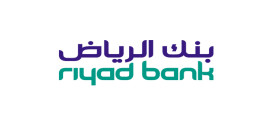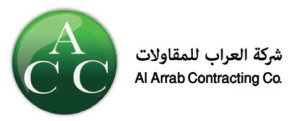 One contracting giant at the leading edge of project work would like to see changes in the way bankers cater for the requirements of major players in the sector. PAUL MELLY reports
One contracting giant at the leading edge of project work would like to see changes in the way bankers cater for the requirements of major players in the sector. PAUL MELLY reports
From airports and office towers to high-speed rail lines, housing schemes, hospitals and power plants, Al Arrab Contracting Company (ACC) is engaged in projects across Saudi Arabia. At any one time, as one of the leading construction firms in the Kingdom, it is committed to a portfolio of work spread across a wide range of business sectors, posing major technical and management challenges.
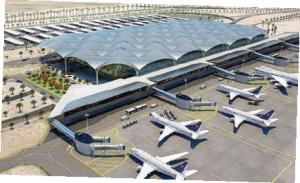
The company is part of the Al-Rajhi Holding Group, which became a major shareholder in 2005 and took 100 per cent ownership six years later.
Its current project agenda includes the construction of both terminal five at Riyadh’s King Khaled International Airport – where it is working in joint venture with Turkey’s TAV – and hangers at Jeddah’s King Abdulaziz Airport. It is also the construction arm of the Tibah consortium, which has taken on the expansion of Madinah’s Prince Mohammed Bin Abdulaziz Airport under a 25-year BOT (build-operate-transfer) contract.
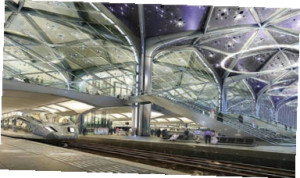
Al Arrab is responsible for the main building at the new Taif hospital for disabled patients, as well as the construction and fitting out of the Um Al Qurra university hospital; this latter contract includes the installation of a wide range of medical equipment.
Moreover, Al Arrab has also been one of the main contractors for the construction of Saudi Arabia’s new high-speed rail system, Al Haramain, one of the most important new infrastructure schemes the country has seen in recent decades.
And these days it is also looking abroad for work, with the development of 13 towers on the Pearl Island scheme in Doha, Qatar.
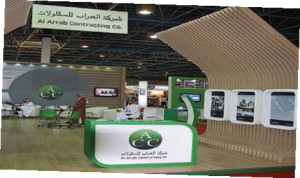
Moreover, it has a Romanian subsidiary that manufactures electro-technical equipment and operates in more than a dozen countries.
So for a business as diverse and broad ranging as ACC, a strong financial management structure and experienced treasury unit are obviously crucial.
Ahmed Aboushebeka is the company’s head of treasury, corporate finance and collection, heading a specialist operation.
“We have a separate treasury team focusing only on treasury and trade finance activities, including, cash management, FX exposure, banking relations, loans, bonds/guarantees and LCs (letters of credit),” he says.
Business set to grow
The overall economic environment remains favorable, despite last year’s fall in hydrocarbon prices.
“Business in general in Saudi Arabia is expanding widely and the construction industry is booming. Despite the decrease in oil prices and political instability in the region, the Kingdom managed to maintain a high level of spending,” Aboushebeka points outs.
“ACC’s backlog of work has been increasing over the past three years and we expect it to continue growing until 2017.”
However, Al Arrab still faces a wide range of challenges in managing its finances and securing the services that it needs from the banking community and other service providers.
As a construction company, ACC inevitably finds itself working on many contracts for public sector clients, building major infrastructure and public service facilities, and this does pose some challenges.
“The main ones are the long process for payment through the governmental entities, along with a scarcity of qualified subcontractors and labour,” says Aboushebeka.
Moreover, the nature of banking in Saudi Arabia also possess tough questions for a major company such as Al Arrab Contracting, with its need for competitive and responsive financial services.
Aboushebeka says that the banking system is “very strict” and still depending heavily on name lending. He would clearly like to see greater diversity in what banks offer and changes in the way they cater for the requirements of major players in the contracting sector.
He says that ACC prefers to use a range of banks, rather than relying on just one.
“The banking system in the Kingdom of Saudi Arabia is very strict and conservative in relation to corporate finance related to the construction industry. The services offered do not show any differentiations between banks. The processes are long and continuously changing.”
So, for Aboushebeka, what are the key criteria in measuring what a bank offers ?
“It is mainly service provided and quick decision making. In most banks this is not fully in place yet.”
This can be frustrating for companies that are trying to innovate and develop more effective approaches in the management of finances, especially SMEs.
Asked about new initiatives in this respect at ACC, Aboushebeka explains that the company is focused on how it manages its cash and also on the search for cheaper sources of financing.
“We are trying to implement cash pooling with several banks – but this is still far from implementation. We are also trying to arrange new – mainly Islamic – sources of finance that give you the flexibility, longer tenor and higher profit margin.”
This is an era when technology and information systems are critical for the management of finance in any major company, and ACC is no exception, as Aboushebeka explains.
“We have spent a big budget on enhancing our systems and implementing Oracle as our ERP system….We have already implemented the latest version of Oracle, including an in-house customised treasury system.”
One area where Al Arrab’s requirements are less tough is foreign currency.
“We have a very minimal level of foreign exchange – mainly in US dollars. And, as the Saudi riyal is essentially pegged to the US dollar, the hedging techniques we use are very simple, except in the water and power sector, where most material is imported.”
An important priority for Al Arrab is training and maintaining the quality of the personnel in its financial management team – and ensuring that good employees remain on board.
“Manpower and the working environment is the main challenge while working in Saudi Arabia. You need to build a very good team and keep them trained and updated to be able to compete,” says Aboushebeka. “Losing head count in KSA is really a big loss.”
But effective strategies and management can pay valuable dividends in providing a solid platform for long-term success.
“Many companies miss the complete set of policies and procedures,” Aboushebeka says. “Once these are set correctly with a deep insight according to the real needs of the company, the business jumps to a whole new level.” n
 Cash And Trade Magazine For Cash and Trade professionals in the Middle East
Cash And Trade Magazine For Cash and Trade professionals in the Middle East


